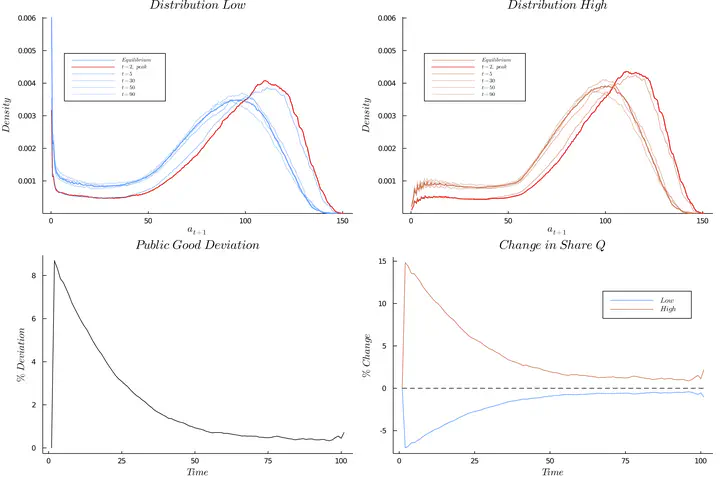Linking Macroeconomics and Wellbeing
 Author’s image
Author’s imageIn this post I rapidly describe the main motivations, research question and findings of my Master’s Thesis. See here the full document.
The purpose of this Thesis was to expand upon the foundational objectives driving economic policy decisions. In a context of rising inequality and malcontent across the West, evidence shows that standard economic indicators like GDP or consumption do not represent people’s wellbeing effectively. In particular, a novel 2020 paper by Dennis Snower and Katharina Lima de Miranda found that other determinants of personal welfare like individual empowerment, social cohesion and environmental health, are increasingly ‘decoupling’ from, or unrelated to, people’s material wealth. With significant new data collection efforts underway like the OECD’s Better Life Index , we now have the means to measure more complete versions of wellbeing. Therefore, I introduced one such index, the SAGE framework, into a modern macroeconomic model to analyze the theoretical consequences of shocks. My findings were two-fold:
- First, my model produced contrasting wellbeing responses for different members of society (as differentiated by wealth and earnings)– what could be considered ‘wellbeing inequalities’.
- Second, the new wellbeing dimensions became uncoupled from income fluctuations, reflecting empirical observations.
Follow the link above to download my Master’s Thesis from the University of Oxford’s Social Macroeconomics page. And, feel free to reach out to collaborate– I would be happy to apply my heterogeneous agent Bewley-class model (coded in Julia) to new projects.